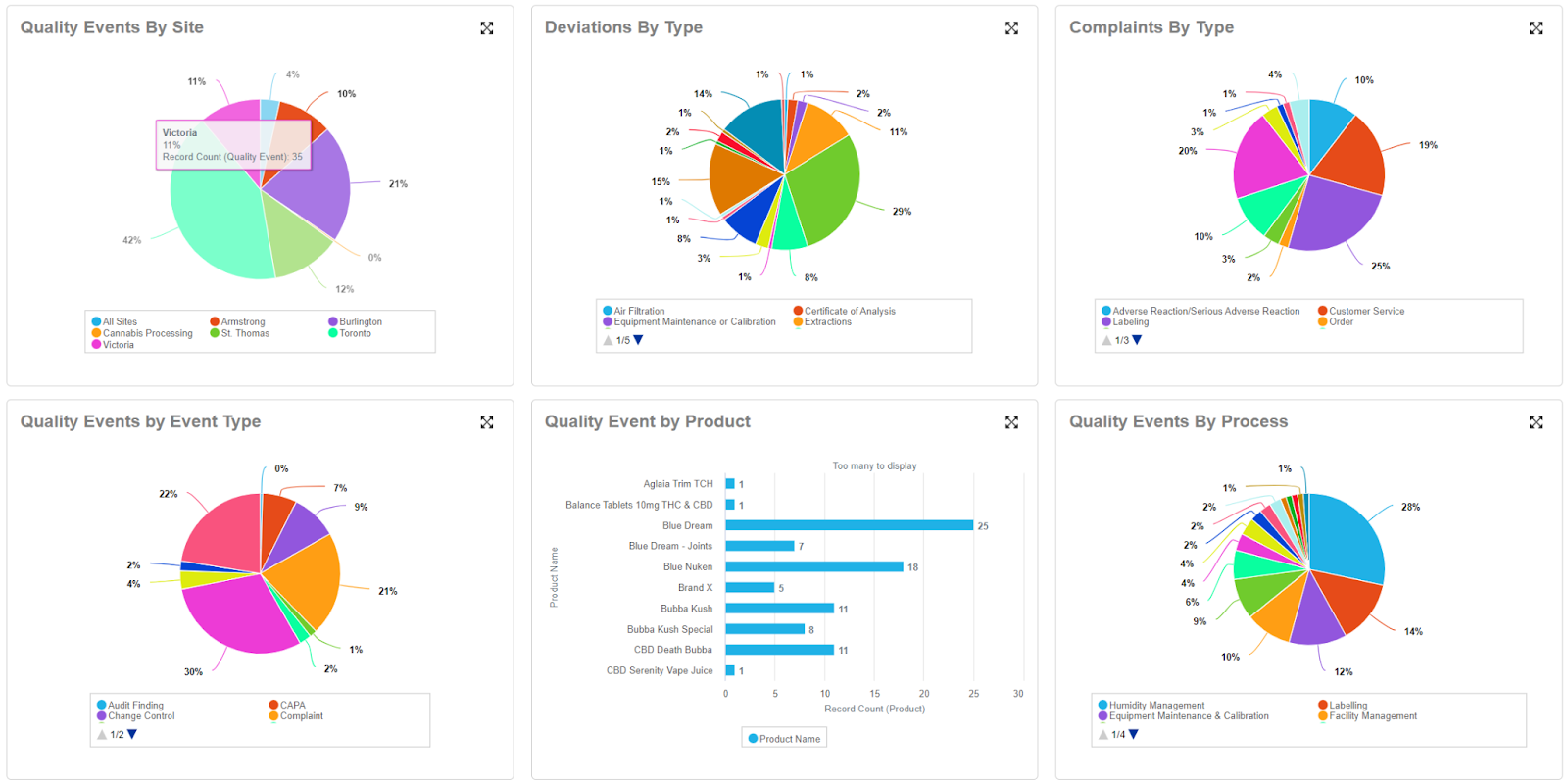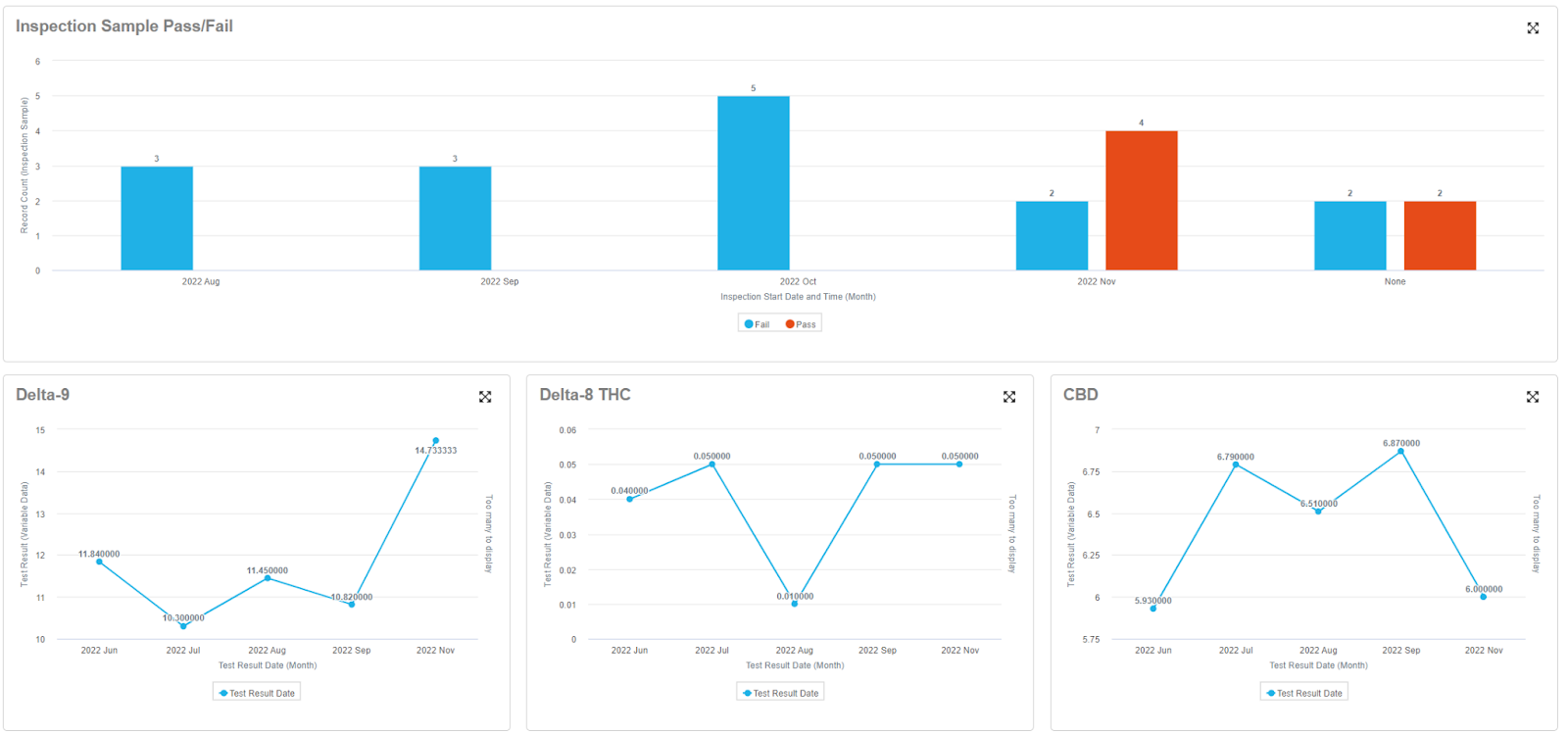Traceability is a fundamental element in ensuring product quality, safety, and compliance. Whether it's cannabis, pharmaceuticals, or food and beverages, being able to track and document the entire production process is essential. With advancements in modern technology, traditional paper-based systems are gradually giving way to more sophisticated and efficient solutions. One revolutionary development in this realm is the adoption of Electronic Batch Records powered by electronic Quality Management Systems (eQMS).
What are Batch Records?
A batch record serves as the life history of a product batch, documenting all processes and steps it undergoes to become the final product. It includes essential information such as dates, growth stage transitions, location changes, nutrient application, Integrated Pest Management (IPM) tasks, and all cultivation and processing steps outlined in Standard Operating Procedures (SOPs).
It also
must include any quality-related issues during the production process - whether there was an unplanned deviation, an issue with input (raw) materials, or even testing of the final product (i.e. an out-of-spec Certificate of Analysis or ‘COA’).
For a robust quality assurance program, it is crucial to ensure that batch records are exceptionally detailed. However, creating such detailed batch records demands significant time and effort from both Quality Assurance and Operations teams, potentially causing delays in batch release and overall production timelines. QMS streamlines these efforts without compromising quality or compliance. Plus, without linking your executed batch records to the
master batch record
in your library, there is also a risk of not referencing the correct version.
The Evolution of Batch Records: From Paper to Electronic
For decades, industries have relied on paper-based batch records to document the step-by-step processes involved in manufacturing products. While these records served their purpose, they were not without limitations. Paper-based systems were time-consuming, error-prone, and challenging to maintain, especially in companies dealing with high production volumes.
The emergence of electronic systems began to transform these challenges into opportunities. eQMS offers a centralized platform for document control, training, deviations, and other quality processes - becoming a game-changer in terms of traceability!
C15 Solutions consolidates key information such as sanitation records, quality investigations, COA results, supplier corrective action requests (‘SCARs’) and equipment calibration records. The platform’s Automated COA Analysis provides an instant pass or fail result, accompanied by a visual trend analysis that facilitates the batch-release process, ensuring conformity with target specifications.

Ensure production readiness with visibility into your equipment status.
Learn how else C15 is empowering cannabis businesses.
How eQMS and Electronic Batch Records Revolutionize Manufacturing
Real-Time Data Capture
Immediate visibility into operations enables companies to identify and rectify issues promptly. Decision-makers can access live data, enabling a faster response to potential problems and ensuring product quality remains uncompromised.

C15 gives you real-time visibility into the bottlenecks across your operation.
Reduced Risk of Errors
Manual data entry often leads to errors. eQMS eliminates this risk by governing the entire batch run with stage-gated workflows, thereby automating data capture, minimizing human intervention, and maintaining data integrity.
Enhanced Compliance
In highly regulated industries, the U.S. Food and Drug Administration's (FDA) Current Good Manufacturing Practices (cGMP) require proof of proper handling for every step of the production process. Batch records and other types of manufacturing documentation demonstrate this level of accountability.
eQMS allows companies to create standardized workflows and enforce compliance across the organization, making audits smoother and less time-consuming. Moreover, eQMS offers compliant e-signatures, a requirement for 21 CFR Part 11 compliance (ONLY eQMS offers this feature - ERP, S2S & MES platforms do NOT offer compliant e-signatures).
Interconnected Systems
eQMS platforms integrate with other critical systems like environment monitors/controls, Enterprise Resource Planning (ERP) platforms, and Laboratory Information Management System (LIMS) platforms. This interconnectedness ensures a seamless flow of information across the organization, enabling better collaboration between departments.
Version Control and Audit Trails
Keeping track of changes to batch records is crucial for maintaining an accurate historical record. eQMS offers robust version control and audit trail capabilities, allowing users to view previous versions, track changes, and understand the sequence of events during the manufacturing process.
Data Analytics and Continuous Improvement
When you have your batch-run process handled by your eQMS, the production team gets visibility across the entire operation. Relevant SOPs are associated with each production process and equipment calibration and status can be verified pre-run. Batch-runs can be linked to real-time quality investigations and processed accordingly.
Plus, by leveraging analytics, companies can enhance overall efficiency, resulting in cost savings and higher-quality products! C15 has developed an eQMS platform that enables companies to reduce their cost of quality by
30-40%
To give further context into how large those savings are, they typically represent anywhere from
10-20% of overall operating expenses - based on actual C15 customer ROI analyses.

Above & beyond automated pass/fail analysis, C15 allows you to trend COA results.
Training Management & Competency
An eQMS platform can track employee training and competencies, ensuring that personnel involved in the batch-run process are adequately trained and qualified for their respective roles.
Mastering the Digital Shift
Companies that embrace electronic systems and leverage their benefits will position themselves at the forefront of quality management but there are some considerations that companies must address during implementation.
Initial Investment:
Transitioning from a paper-based system to eQMS requires an initial investment in technology, training, and integration. However, the long-term benefits outweigh the upfront costs.
Data Security:
As data becomes digitized, ensuring its security and protection against unauthorized access becomes paramount.
User Training and Adoption:
Proper training and change management is crucial to ensuring that employees embrace the new electronic systems. User buy-in and adoption are essential for the success of any eQMS implementation.
Regulatory Compliance:
While eQMS can enhance compliance, companies must ensure that electronic systems meet regulatory standards such as 21 CFR Part 11.
The future of traceability lies in the seamless integration of eQMS and Electronic Batch Records as you can eliminate paper from the line with industry-leading technology.
Looking to maintain a sustainable, competitive edge?
Book a demo today.


